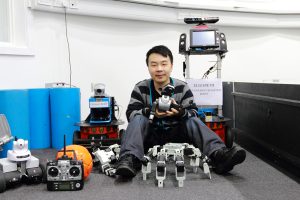10 Jan 2018
Today’s technology and science-driven revolution, known as the Fourth Industrial Revolution, offers an unprecedented opportunity to embrace cleaner, greener and more efficient solutions to sustainable development.
These solutions, however, are scalable only if supported by timely policy interventions, regulatory and governance frameworks and sustainable financial systems.
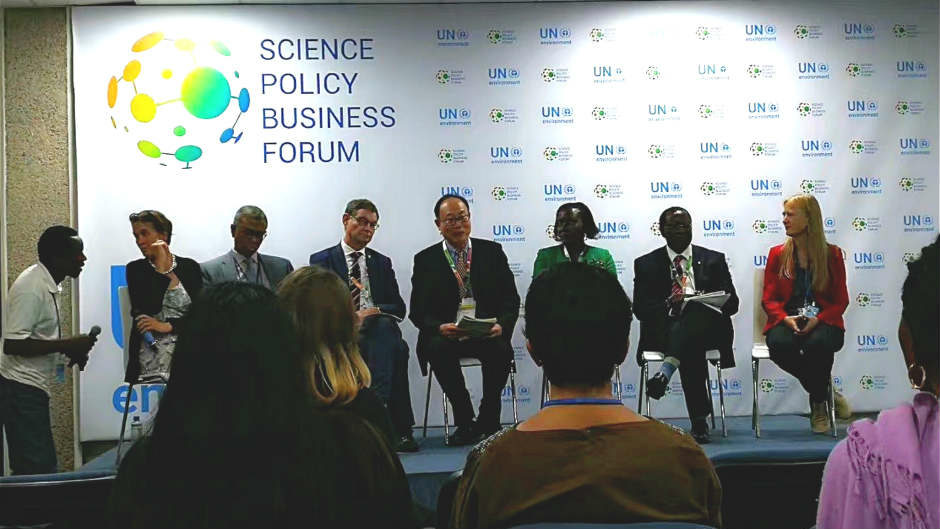
Dr Yixin Zhang (pictured above, fourth from the right), co-director of the Research Institute of Urbanisation at Xi’an Jiaotong-Liverpool University, was invited to take part in the UN Environment Assembly 2017, held in Nairobi, Kenya, with the theme ‘Towards a Pollution-free Planet’.
During the assembly, Dr Zhang also attended the UN Science-Policy-Business Forum on the Environment and discussed new technologies in wastewater management with experts from all over the world.
The UN Science-Policy-Business Forum on the Environment aims to identify and promote opportunities to grow green technology markets, driven by advances in science and technology, empowering policies and innovative financing.
Dr Zhang said: “Driven by this goal, the Forum would strengthen the wider interface between science, policy, business and society by building consensus around key issues and by tearing down traditional barriers between these sectors.
“Planned as an annual event, the Forum hopes to become an incubator of great ideas and initiatives and an accelerator of cross-sectoral actions towards a more sustainable future.”
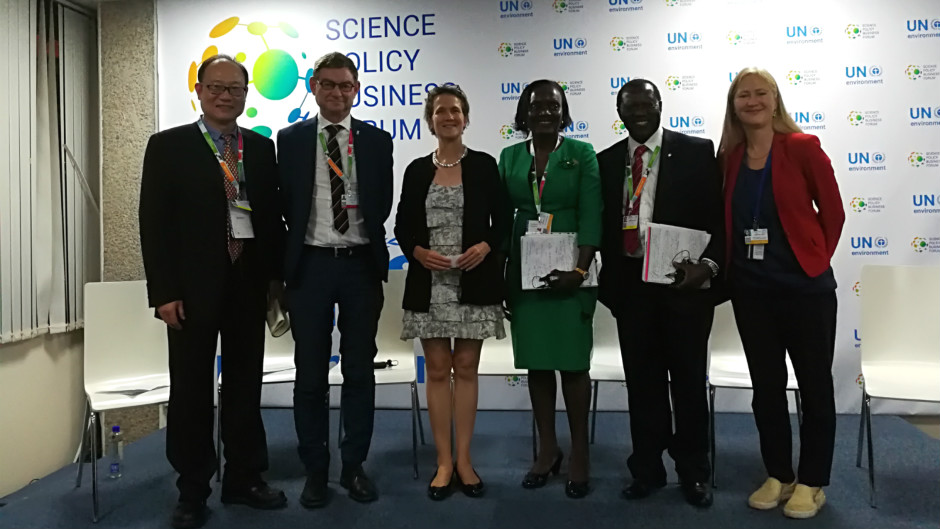
In the parallel session ‘Transforming Burden into Wealth: New Technologies in Wastewater Management’, Dr Zhang spoke with Elliott Harris, UN assistant secretary general and director of the New York Office of UN Environment, Ludo Diels, CEO of Andicos Corporation, Belgium, and Cate Nimanya, director of the Uganda Office of Water for People.
Their discussion focused on the new technologies that are enabling the transformation of wastewater into an efficient and sustainable source of energy, nutrients, organic matter and other useful by-products with implications for food and energy security as well as climate change mitigation.
They also examined the financing, regulatory and policy structures required to empower investment in these technologies.
During the discussion, Dr Zhang noted how pollutants generated by aquaculture (the farming of aquatic organisms) and those found in sanitary wastewater can reduce the amount of dissolved oxygen in water and influence the growth and reproduction of aquatic organisms causing ecosystem imbalance; additionally, surplus nitrogen and phosphorous can result in eutrophication and the growth of plants and blooming of cyanobacteria (previously known as ‘blue-green algae’).
“China has a long story of wastewater treatment,” explained Dr Zhang. “Waste from aquaculture, sanitary wastewater, and straw have been used in biogas production over 30 years, and the low-concentration gas produced is used in cooking. In so doing, pollution caused by aquaculture and sanitary wastewater is decreased,” he said.
“However, in order to better utilise resources and promote regional sustainable development, it’s urgent to explore more efficient wastewater treatment technology, for instance, using wastewater, waste materials and bacteria to produce high-concentration biogas that can be used for electricity production in power plants.”
Additionally, Dr Zhang noted that research on wastewater treatment and resource utilisation has been conducted in 151 countries and some achievements have been made, but there remains a lack of cooperation among these counties.
“Consequently, it’s necessary to consider carrying out an extensive cooperation on wastewater treatment and resources utilisation as our common goal,” he added.
story and images provided by the Research Institute of Urbanisation; edited by Guojuan Wang and Danny Abbasi
10 Jan 2018
RELATED NEWS
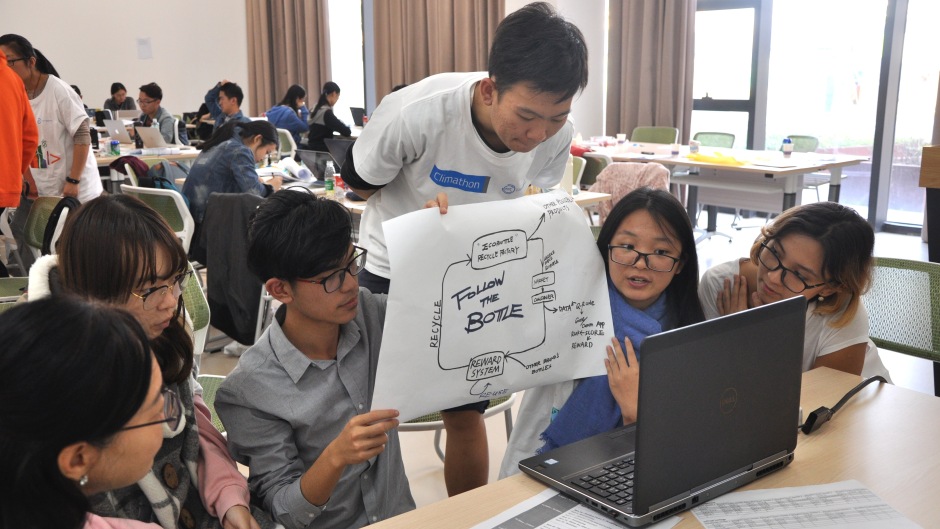
Climathon Suzhou 2017 - circular economy challenge
For the first time, Xi’an Jiaotong-Liverpool University participated in Climathon - a 24 hour hackathon to find solutions to local and global climate challen...
Learn more
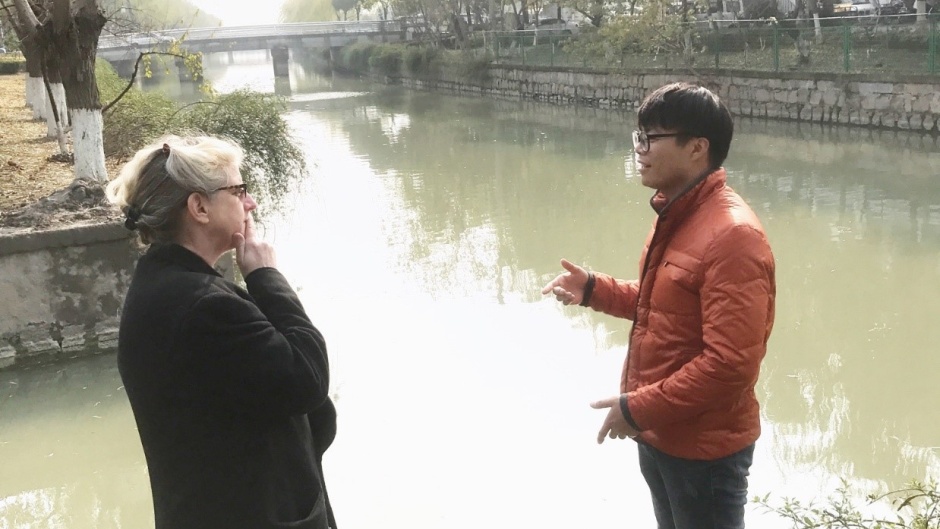
Pollutant detection research given international award
assets/images/news/2017/12/Xiaokai_Zhang_w_Mona.jpg
Learn more

